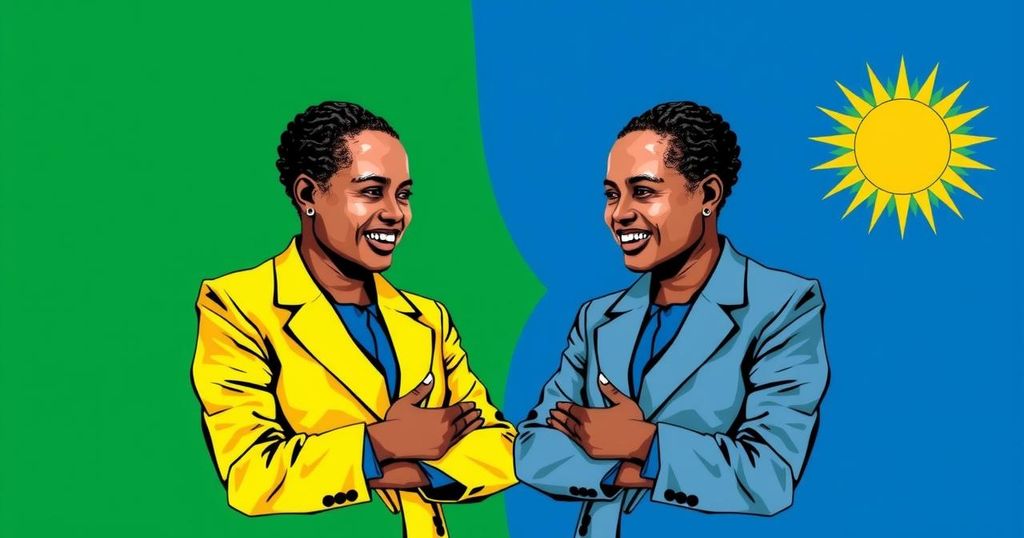Namibians Vote in Pivotal Elections as Swapo Seeks to Extend Its Rule

Voting is underway in Namibia’s highly competitive elections, with Netumbo Nandi-Ndaitwah from Swapo aiming to become the country’s first female president. Facing challenges such as unemployment and corruption allegations, she competes primarily against Panduleni Itula from IPC. The polls reflect a critical moment for both the presidency and parliament, with significant youth involvement in determining the outcome.
Voting has commenced in Namibia, marking what is anticipated to be the most competitive election since the nation gained independence from South Africa 34 years ago. Netumbo Nandi-Ndaitwah is representing the ruling South West Africa’s People’s Organisation (Swapo) with aspirations to become the first female president of Namibia. Her predecessor, Hage Geingob, passed away in February, leaving the party seeking to maintain its long-standing power amidst challenges such as high unemployment and allegations of corruption.
Among her main competitors is Panduleni Itula of the Independent Patriots for Change (IPC), along with 14 other candidates. Reports indicate that numerous voters queued at polling stations early on Wednesday as the polls opened at 07:00 local time. To secure a victory, a candidate must achieve over 50% of the votes; otherwise, a runoff will occur between the top two contenders.
Nandi-Ndaitwah urged Namibians to exercise their voting rights, stressing the significance of their choices for the forthcoming five years. As a seasoned political figure, she is navigating a challenging cultural landscape that is often dominated by male leadership. Her opponent, Itula, a former dentist and lawyer who garnered 29% of the votes in the previous elections, reiterated the importance of this day for Namibia’s democracy.
Currently, Namibia is led by interim President Nangolo Mbumba, who assumed office after Geingob’s demise, although he is not a candidate in this election. Analysts suggest that the youth, who represent over half of the electorate, may greatly influence the election outcomes. In addition to choosing a president, voters are also selecting new members of parliament in a country with a population of approximately three million, of which around half are eligible to participate in this democratic process.
In the context of African politics, Namibia has been governed by the Swapo party since it achieved independence in 1990. The ruling party has maintained a dominant position for 34 years, but recent economic challenges, including high unemployment and widespread poverty, have raised questions about its longevity in power. The upcoming election is particularly crucial as it reflects a potential shift in public sentiment, especially among younger voters eager for change. Netumbo Nandi-Ndaitwah’s candidacy as a female leader represents a significant step towards greater gender representation in Namibian politics, traditionally characterized by male dominance. This election is not only pivotal for the leadership of the country but also for the direction of its political landscape in the coming years.
The ongoing elections in Namibia represent a critical juncture in the nation’s political history as citizens seek to address pressing social and economic issues. With challengers like Panduleni Itula posing significant competition, the outcome remains uncertain. The engagement of young voters, who play a substantial role in the electorate, will likely shape the future political landscape of Namibia. As the country moves towards a decision on its new leadership, the implications for governance and policy are profound, potentially steering the nation in new directions for the next five years.
Original Source: www.bbc.com






